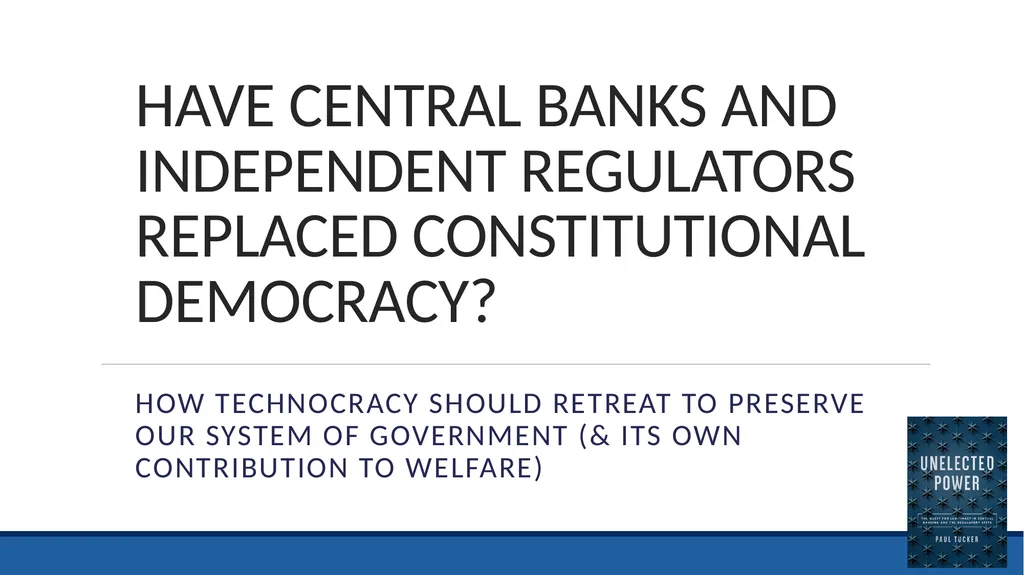
Author : mitsue-stanley | Published Date : 2025-08-06
Description: HAVE CENTRAL BANKS AND INDEPENDENT REGULATORS REPLACED CONSTITUTIONAL DEMOCRACY? HOW TECHNOCRACY SHOULD RETREAT TO PRESERVE OUR SYSTEM OF GOVERNMENT ( ITS OWN CONTRIBUTION TO WELFARE) PAUL TUCKER, HKS PUBLIC LECTURE AT KINGS COLLEGE LONDONDownload Presentation The PPT/PDF document "" is the property of its rightful owner. Permission is granted to download and print the materials on this website for personal, non-commercial use only, and to display it on your personal computer provided you do not modify the materials and that you retain all copyright notices contained in the materials. By downloading content from our website, you accept the terms of this agreement.
Here is the link to download the presentation.
"HAVE CENTRAL BANKS AND INDEPENDENT REGULATORS"The content belongs to its owner. You may download and print it for personal use, without modification, and keep all copyright notices. By downloading, you agree to these terms.













